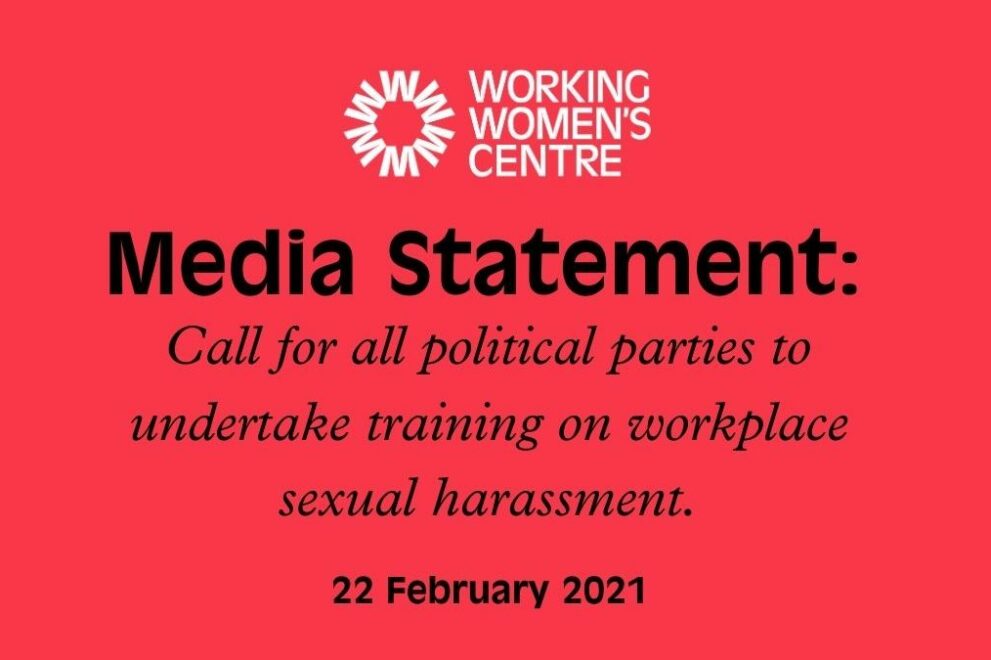Your cart is empty.


Your cart is empty.
Read the full article on Refinery19
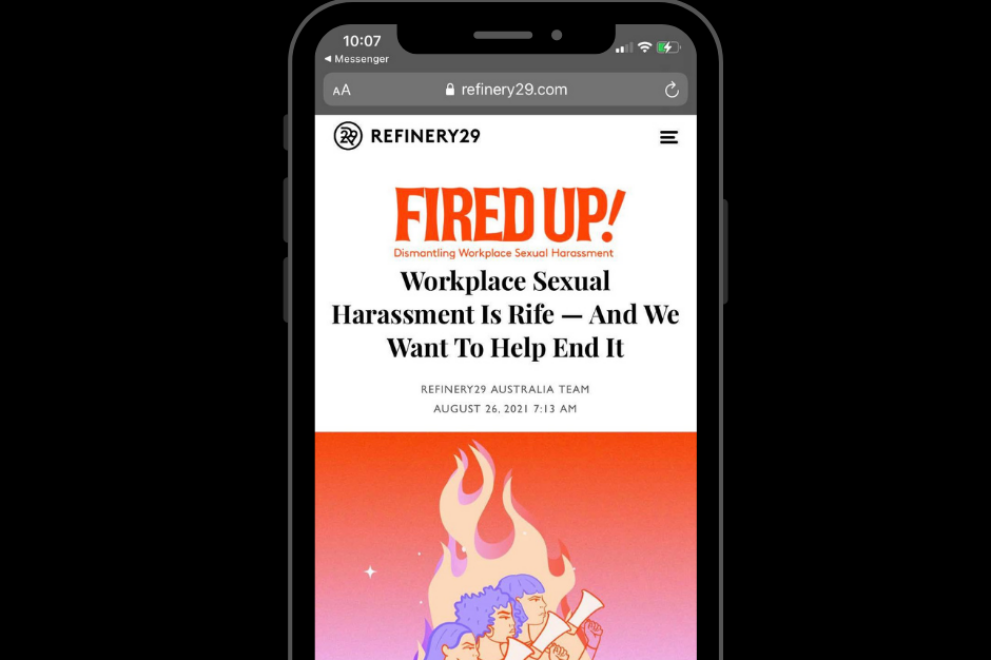
Read the full article on Refinery29 here
The Northern Territory Working Women’s Centre — a community-based non-profit organisation that supports women through gender discrimination, sexual harassment and assault in the workplace — is at risk of closure. Sign the petition to demand federal funding — it only takes 2 minutes! To read more about Refinery29 Australia’s long-term initiative to dismantle sexual harassment in the workplace, visit the #FiredUp hub.
“reclaim its position as leaders in tackling sexual harassment, provide employers with the guidance they need and victims the support and redress they deserve.”
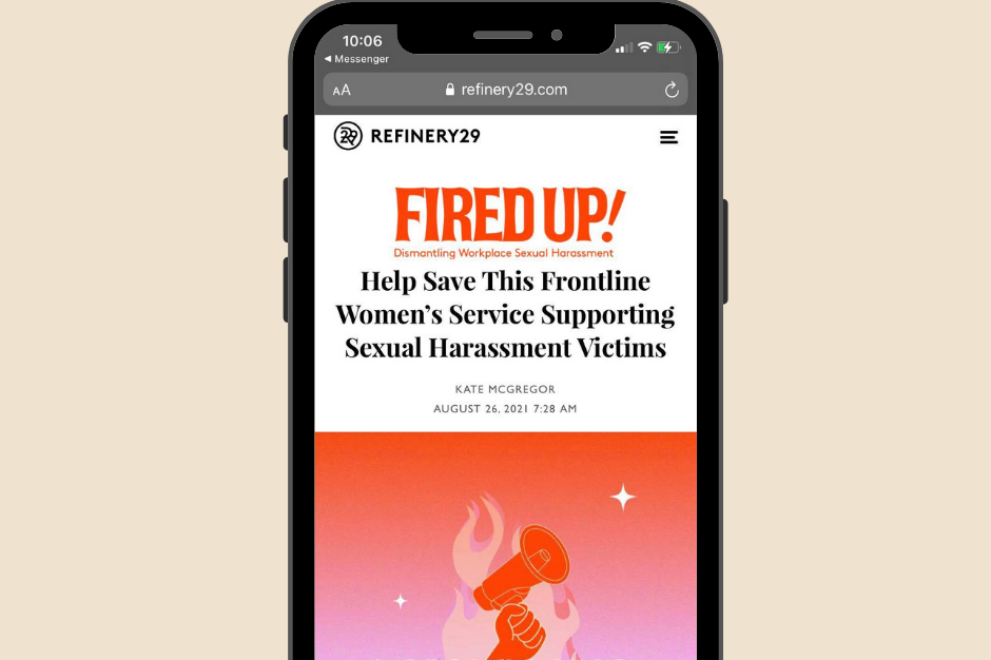
Read the full article on Refinery29 here
The Northern Territory Working Women’s Centre — a community-based non-profit organisation that supports women through gender discrimination, sexual harassment and assault in the workplace — is at risk of closure. Sign the petition to demand federal funding — it only takes 2 minutes! To read more about Refinery29 Australia’s long-term initiative to dismantle sexual harassment in the workplace, visit the #FiredUp hub.
Nicki Petrou, the director of the NTWWC, says the NT government gives the centre $200,000 a year, but another $700,000 annually is needed to keep it open. If the federal government doesn’t commit to this funding soon, she fears being forced to make staff cuts, reduce operating hours from five to three days a week in September, and potentially closing doors in November.
“[The funding] will be able to at least fund us properly, and to be able to respond appropriately to the demand,” Petrou told Refinery29 Australia.
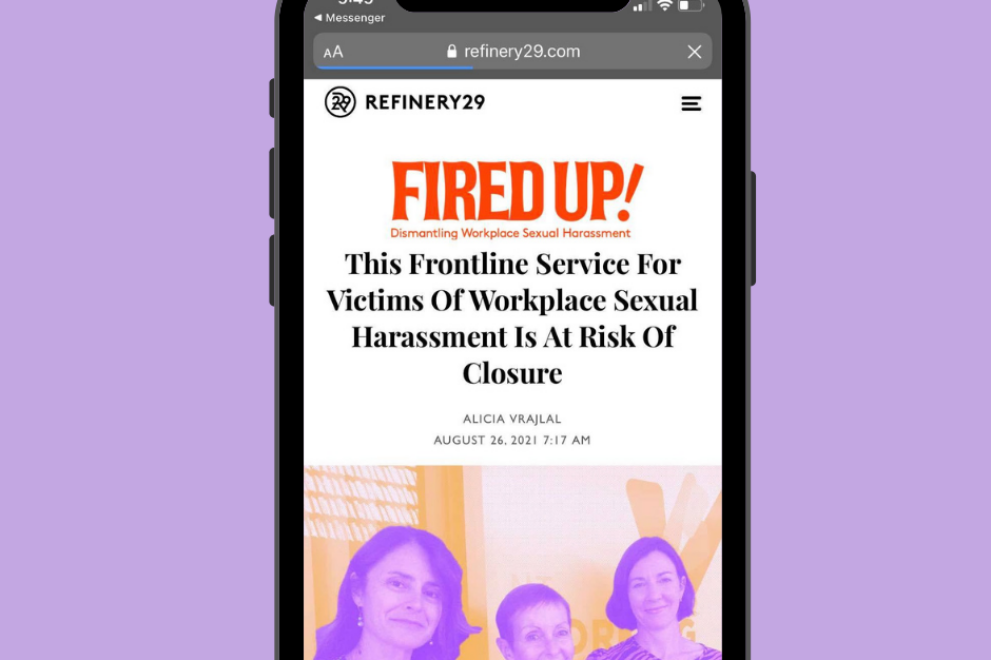
Read the full article on The Sydney Morning Herald here.
Specialist employment law centres that help women take action against underpayment and sexual harassment are warning they are at risk of closure as a decision on giving them permanent funding is delayed.
The federal government is still consulting states and territories over funding for the working women’s centres, which the landmark Respect@Work report from the national inquiry into sexual harassment in Australian workplaces recommended should be increased and made recurrent.
Standalone working women’s centres exist only in Queensland, South Australia and the Northern Territory. They are specialist workplace legal services that advise and represent women who aren’t union members and can’t afford private lawyers.
Sex Discrimination Commissioner Kate Jenkins recommended in the Respect@Work report that their funding should be boosted and similar services set up in the states that don’t have them.
“Our national inquiry found that support, advice and advocacy for victim-survivors of sexual harassment should be delivered through a multifaceted, holistic approach, including smooth and speedy referrals between services,”
she told The Age and The Sydney Morning Herald.
“Working women’s centres are well-placed to act as a central hub for this approach and address the intersectional needs of victim-survivors in a way that other services may be unable to.”
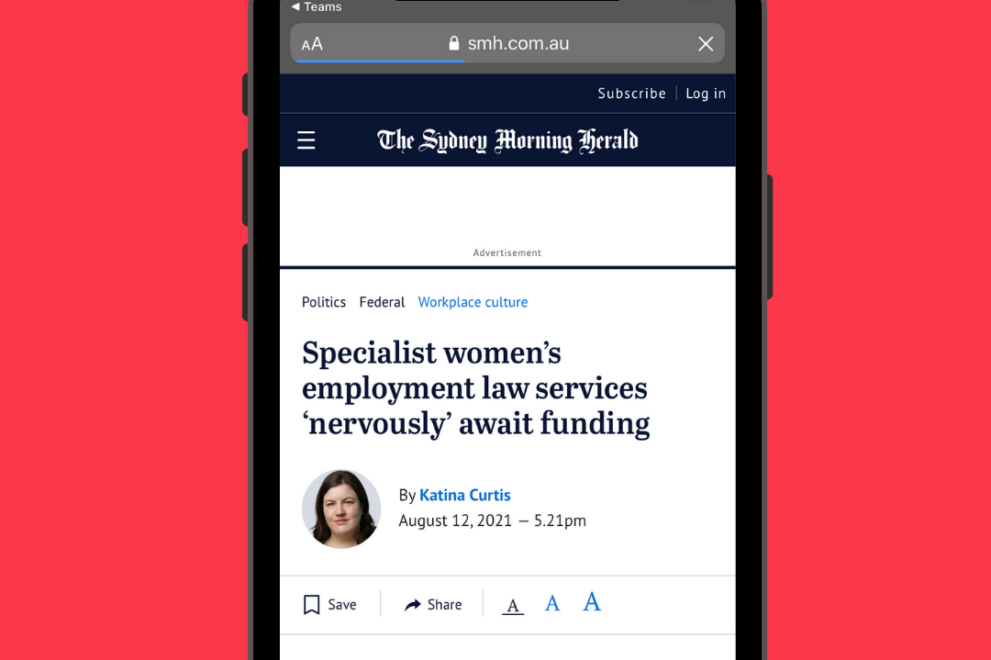
Registrations are open! Join our team & start fundraising for the Working Women’s Centre here:
https://citybay21.grassrootz.com/working-women-s-centre-sa

Have you experienced:
• Wage theft? Do you think you may not be being paid correctly?
• Unfair dismissal? Have you been dismissed from a job recently?
• Discrimination? Have you been treated badly at work due to race, gender or age?
• Sexual harassment?
• Bullying?
• Sham contracting? Does your employer call you a contractor, however you may be an employee?
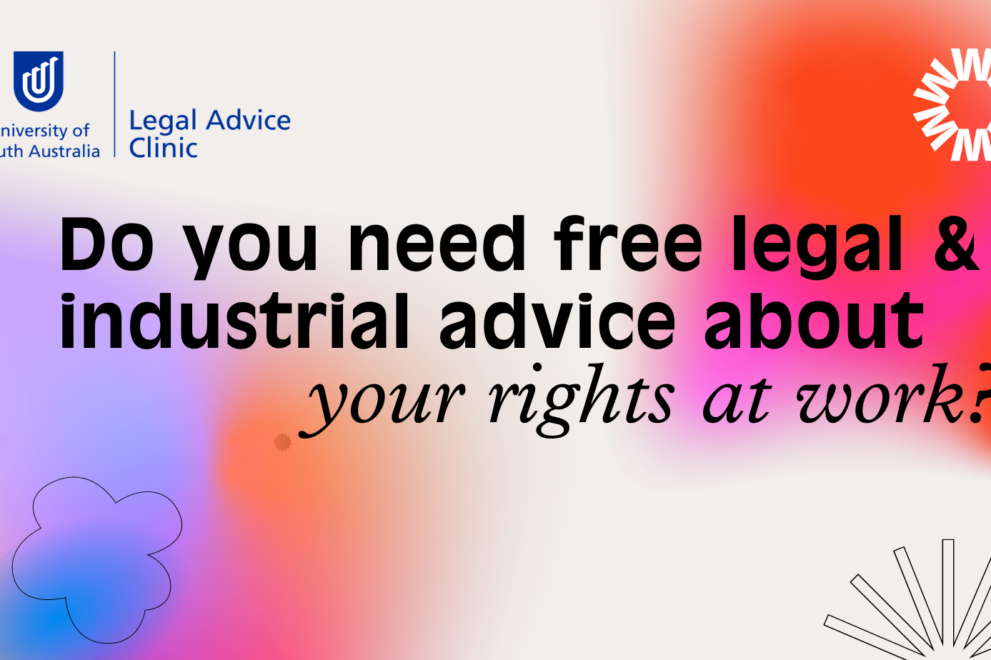
As the Women’s Safety Summit gets delayed, Working Women’s Centres have launched a fight for survival. Working Women’s Centres provide free advice, support and representation to thousands of working women every year about workplace issues.
Two out of five Australian women experienced sexual harassment at work in the past five years, but the Federal Government has failed to properly fund the Working Women’s Centres which provide a first point of contact for women experiencing sexual harassment in the workplace.
Recommendation 49 of the Respect@Work Report is that ‘Australian governments provide increased and recurrent funding to working women’s centres to provide information, advice and assistance to vulnerable workers who experience sexual harassment.
Quotes attributable to Nicki Petrou, Director of the NT Working Women’s Centre:
“Today, we are launching a fight for the survival of our specialised women’s services, services that support working women to ensure their workplaces are safe and fair. A key recommendation of the Respect@Work report was to provide increased and recurrent funding for Working Women’s Centres, but the Federal Government has not yet made any announcement of ongoing funding to the QLD and NT Working Women’s Centres.”
“With our one-off interim Federal funding running out in September, and without a further funding commitment from the Federal government, we will have to close the NT Working Women’s Centre by the end of the year. We will need to tell Territory women that we will no longer be there when things go wrong in the workplace, when they need our support.
“Whilst we are grateful for the interim funding from the Northern Territory and Federal Governments, this will not last forever and neither will we if we do not receive funding certainty soon. The time for our service is fast ticking away. We’ve been told that we needed to wait for discussions between state/territory and the federal government, for the Women’s Safety Summit in July. Discussions have been had, and the Summit has now been postponed until September., and now what? We can’t wait that long.
“The need for this funding is urgent: there has been a national outcry against workplace sexual assault that we know occurs in every industry. We cannot delay this. We cannot continue turning women away.
“To achieve safety for women in the workplace, all 55 Recommendations of the Respect@Work Report must be implemented and funded.
“Providing funding certainty to the NT Working Women’s Centre would cost less than $1 million per year. It costs less than $1 million to support women in the NT with our world leading model for tackling workplace sexual harassment and violence. How much are women in Northern Territory worth to this Governement?”
Quote attributable to Fiona Hunt, Director of Working Women Qld:
“Working Women Qld has been operating a reduced service since we lost Federal Funding in 2016. This has meant that hundreds of women in Queensland who have been treated unfairly or been sexually harassed in their workplaces have not been able to get the advice, support and representation they deserve and need to address these issues. Without the support of the Qld Government, the service would have been forced to shut down years ago. Now is the time for the Federal Government to respond to the Respect@Work recommendations and support vulnerable workers across Queensland. Working Women Qld needs Federal funding to operate a full service 5 days a week and to make sure that every woman in Queensland can be safe and equal at work.”
Quotes attributable to Abbey Kendall, Director of the Working Women’s Centre SA:
“The Working Women’s Centre SA is an example of what our service can achieve with sustainable funding. The South Australian Working Women’s Centre receives ongoing funding from both our state and federal governments. In the past two years, we recovered $1.2 million in compensation, stolen wages and penalties for workers.
“Women come to us when they are facing very complex, personal choices about how they respond to harassment in the workplace. Being armed with the facts about their options empowers them at a time when they are incredibly vulnerable. Our model of advice, education and advocacy is world leading. Funding Working Women’s Centres is an easy, immediate and tangible solution for the prevention of sexual violence.”
[End]
Save our Working Women’s Centres website:
https://saveourworkingwomenscentres.com.au/
MEDIA CONTACTS:
WWC NT Director Nicki Petrou
WWC QLD DirectorFiona Hunt
WWC SA Director Abbey Kendall
Come along to our Feminist Action Session to help the Working Women’s Centre develop practical tools that can be used in workplaces.
1 in 3 Australians have experienced sexual harassment at work, yet only 18% of victims report their experience (according to the Respect@Work Report 2020).
The Working Women’s Centre SA has recently completed research that found that workplace posters are effective and engaging tools to highlight inappropriate behaviour and connect victims with support avenues. In the upcoming Feminist Action session, we will discuss ways in which we can combat sexual harassment in our workplaces and communities and support victims of sexual harassment. We’ll also share ideas for a meaningful poster for South Australian workplaces.
In this session you will have the opportunity to share your ideas and discuss the topic with like-minded individuals.
CONTENT NOTE: This event will involve a discussion of workplace sexual violence.
WHEN
29 Jul 2021
5.30-7.00pm
EVENT TYPE
Workshop
WHERE
The Working Women’s Centre SA, Level 1 Station Arcade, 52 Hindley Street
ACCESSIBILITY
Wheelchair Accessibility
We acknowledge that this event is on Kaurna land and we pay our respect to the traditional custodians of the land, past and present . Sovereignty was never ceded.
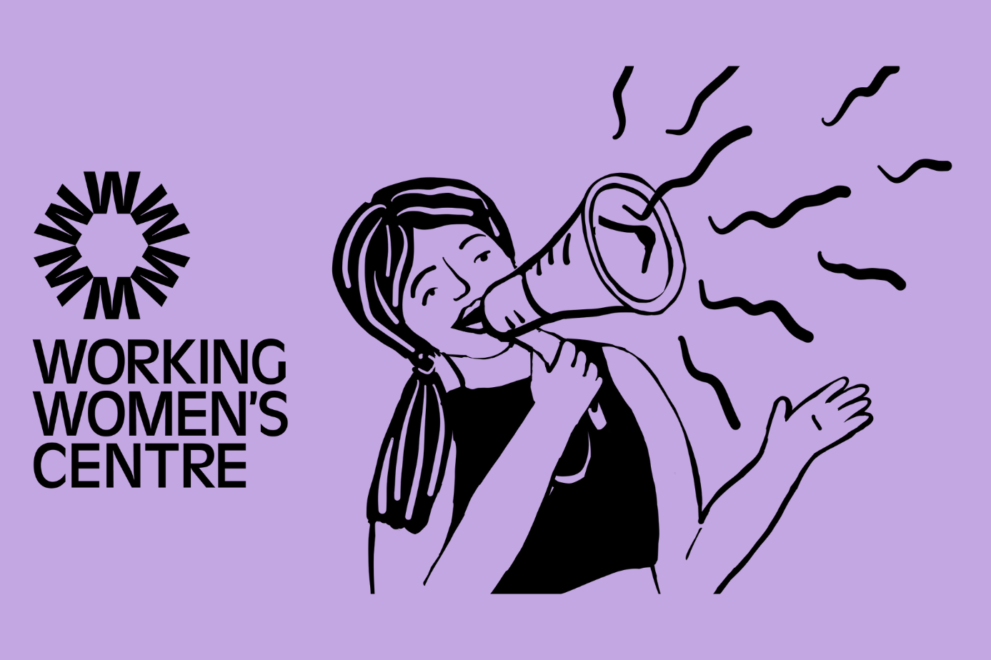
The Working Women’s Centre in collaboration with Fair Go SA, will co-host an educational workshop on worker’s rights and the Fair Work Act.
This will be followed by a confidential (one to one) advice clinic for any workers who need free industrial advice about work.
Our workshop will cover topics including:
At the Confidential Industrial Advice Clinic you can:
WHEN:
23 Jul 2021
2pm – 5pm
EVENT TYPE
Workshop
WHERE
69 Grote Street, Adelaide SA
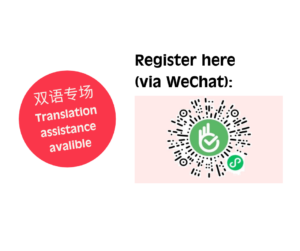
If you cannot register for this event via the We Chat QR code, please email to register: reception@wwc.org.au
Accessibility: Please note that this venue is not wheelchair accessible, there are volunteers who can assist with accessing the venue if required, but only upon request.
We acknowledge that this event is on Kaurna land and we pay our respect to the traditional custodians of the land, past and present. Sovereignty was never ceded.
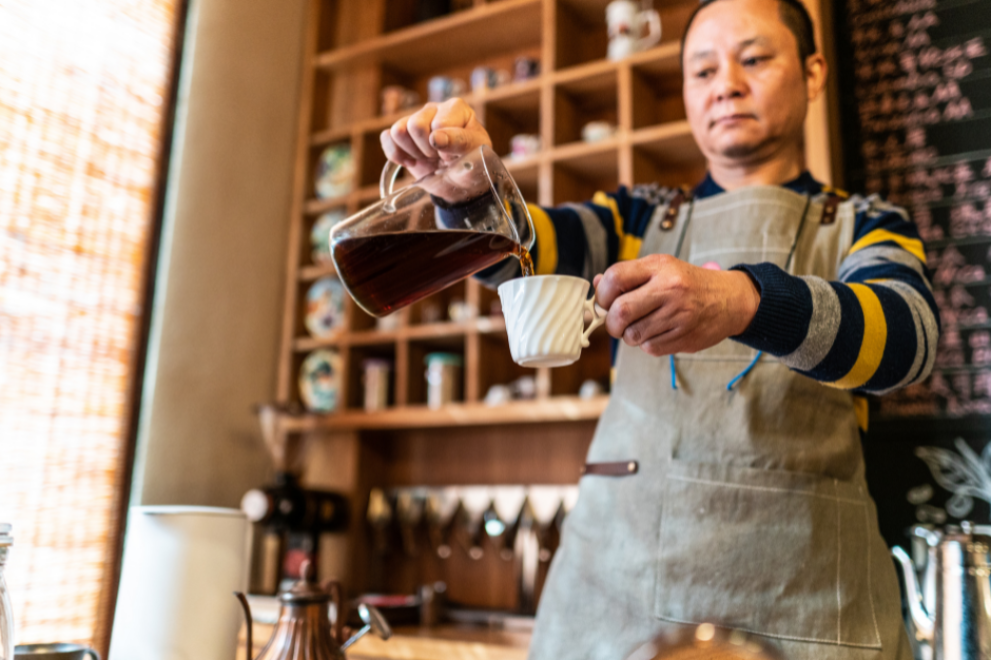
This story is about our fight to save the Working Women’s Centres in the NT and Queensland. It was published by The Saturday Paper on 22 May 2021.
Find the full story here.
Despite this month’s federal budget pledging $3.2 billion to women, a critical front-line service has lost much of its funding and will likely close before the end of the year.
We are pleased to announce major political parties have engaged the Working Women’s Centres to assist with workplace training. Since February, multiple political offices have contacted us to book our training ‘Preventing and Responding to Sexual Harassment’ and ‘When violence comes to work.’ This parties include:
We are pleased that political parties are taking proactive steps to prevent sexual assault in their offices by booking our training programs.
We will be working with Federal Labor and SA Labor over the next 6 months to roll out training for MPs, staff and volunteers.
Over May, the Working Women’s Centers educators travelled to Canberra to train all Federal Labor Chief of Staffs in the prevention of sexual harassment in the workplace. We are in the process of rolling out training for federal Labor offices across the country.
The Working Women’s Centre’s will also provide prevention of sexual harassment training to the Prime Minister and Cabinet department in the coming month. We have a long training relationship with the PMC team.
In South Australia, the SA Labor party passed a motion that commits to ensuring all South Australian Labor Members of Parliament, their staff, elected party officials, office bearers, campaign coordinators and campaign managers will undertake mandatory unconscious Bias training, Preventing and Addressing Sexual Harassment training and Bullying training within the next six months.
Further Senator Wong’s office has booked the suite of Working Women’s training program to be conducted in early July 2021.
We urge all states and territory governments and political parties to do the same. Leadership comes from the top.
Training programs
We encourage all political parties’ and employers to contact the Working Women’s Centres to discuss our training programs. In February 2021, after the allegations of sexual violence and harassment in Parliament House and political parties, we wrote to all political parties, their leaders in every state and territory to encourage them to take the crucial step of engaging workplace training. A previous media release about our correspondence with political parties can be found: here: https://wwcsa.org.au/call-for-all-political-parties-to-undertake-training-on-workplace-sexual-harassment/
Quotes attributable to Abbey Kendall, Director of the South Australian Working Women’s Centre.
“Workplace training is crucial to eliminating violence against women in the workplace and the community. The training must be evidence based, trauma informed and mandatory. We wrote to every political party in the country asking them to lead in this area and we are really pleased that our training programs have been taken up.“
Working Women’s Centre Training Officer Cassandra Deon-Wierda says
“Workplace training and education programs are a vital tool to improving organisational and team culture. Through action based and cooperative learning staff can become empowered and confident in their skills, knowledge, and communication with one another. As we start to gain a better understanding of the intersection of unconscious bias and serious issues within the work environment, the need for employers to maintain an inclusive environment committed to equity and respect are essential.“
Despite our crucial work, Working Women’s Centre’s in NT and QLD are in a funding crisis. We are asking the federal government to save the NT and QLD WWC and establish Working Women’s Centre’s in every state and territory in line with recommendation 49 of the Respect@Work Report. Media releases about this fight can be found here: https://wwcsa.org.au/media/media-releases/
Unless the Federal Government steps and provides ongoing and sustainable funding to the NT and QLD Working Women’s Centre, they will not be able to provide this crucial training.
In the Northern Territory –the NT Working Women’s Centre continues to receive requests for workplace training in a broad range of areas including sexual harassment, domestic and family violence and bullying. ‘All Work Aware training has a violence prevention focus. It is intended to provide safer workplaces by assisting employers/employees understand the issues and how to better respond and support workers on the ground. It is about changing the culture and making workplaces fair and safe for all, proofing your organisations against avoidable risks.’ To date, we have delivered training to a number of Government departments, not for profits and small businesses. It would be helpful if Working Women’s Centres training was available more broadly to workplaces, that we could be funded to roll this out to workplaces across Australia and not just to those who can afford it.
WWC SA Director – Abbey Kendall – 08 8410 6499 – reception@wwc.org.au
WWC NT Director – Nicki Petrou
WWC QLD Director – Fiona Hunt
The Working Women’s Centres call on the Federal Government to immediately take action and fund the Northern Territory and Queensland Working Women’s Centres.
The funding and establishment of Working Women’s Centres in every Australian state and territory is essential to addressing workplace sexual harassment, and forms a key part of the Respect@Work report, appearing at recommendation 49.
The recommendation is that ‘Australian governments provide increased and recurrent funding to working women’s centres, to provide information, advice and assistance to vulnerable workers who experience sexual harassment, taking into account particular needs of workers facing intersectional discrimination.’
The Federal Government has agreed to this recommendation in the Roadmap for Respect. However, the government has failed to provide certainty as to its funding commitment or timeframes around these discussions.
We cannot wait. The Northern Territory and Queensland WWCs have 10 weeks to find funding or face the prospect of closing. This will be devastating to working women in QLD and the NT and it will fly in the face of the federal governments promises to address gendered violence in the workplace.
The Government must act now and immediately fund the NT and QLD services. Our clients, communities and working women are depending on us. Working Women are depending on the government to save their services, who work and understand the local environment and the challenges in which they live and work.
Funding Working Women’s Centres is an easy, immediate and tangible solution for the prevention of sexual violence. This is the first test for the new Attorney General and the federal government since their response to the Report’s 55 recommendations.
Experts and leaders in gender equity regularly talk about the Working Women’s Centre holistic model as world leading. WWCs form the backbone of the fight to eliminate gendered violence in our workplaces and the community.
Director of the QLD Working Women’s Centre Fiona Hunt says: “All women deserve safe workplaces and someone to champion them when they are treated unfairly. WWC QLD works with the most vulnerable women in QLD to keep them employed, to get what they are entitled and to walk away fairly if needed.”
Director, of the NT WWC Nicki Petrou says: “In a climate when women’s safety at work has again hit the headlines, when the Federal Government has committed to building women’s workforce participation, economic security and making women’s homes and workplaces safe, funding specialist women’s services such as the Working Women’s Centres who are here now continuing to do the work, in supporting women with workplace issues and throughout COVID is especially critical. This also makes good sense.”
Director of the SA WWC Abbey Kendall says: “The South Australian WWC is a great example of what a secure and funded and working women’s center can do for workplaces, vulnerable people and working women. We make a big impact in South Australia but we need a national approach to this issue. We need an alliance of well funded Working Women’s Centres in every state and territory and the first step to achieving that is to save the NT and QLD centres”.
WWC NT Director – Nicki Petrou,
WWC QLD Director – Fiona Hunt
WWC SA Director – Abbey Kendall
The Working Women’s Centres are not-for-profit organisations which providefree advice, representation and support to vulnerable, workers about their rights at work. Additionally, the WWC’s advocate for systemic change to improve women’s workplace conditions and safety, and offer a range of free and fee for service training for workers and employers about workplace rights. This includes bullying, sexual harassment, and appropriately responding to disclosures of domestic violence.
There are currently 3 WWCs across the country (SA, NT and QLD). The only WWC with secure funding is WWC SA with the QLD service now a program of the Basic Rights Centre following non continuation of its funding 4 years earlier.
The Working Women’s Centre is made up of three arms:
Industrial/Legal support – we provide advice and representation to vulnerable workers who contact the Centre with work issues through 1:1 clinic appointments
Advocacy – we conduct advocacy to resolve systemic issues that affect women and other vulnerable workers, such as sexual harassment and precarious work
Education – we provide fee-for-service and free training for workers and employers about workplace rights. This includes bullying, sexual harassment, and appropriately responding to disclosures of domestic violence.
Core practices of the WWC
The Working Women’s Centre model is unique due to the combination of a number of core practices.
This article was published by Glam Adelaide 16 March 2021.
Read the full article and see the photo on Glam Adelaide’s Website
March participants congregated at midday in Victoria Square to hear speeches before heading down to North Terrace.
Hosted by March 4 Justice, the event championed inclusion, and people of all genders were in attendance.
“The March is not just for women. It’s for everyone who wants an end to gendered violence – people from all backgrounds are welcome,” they say.
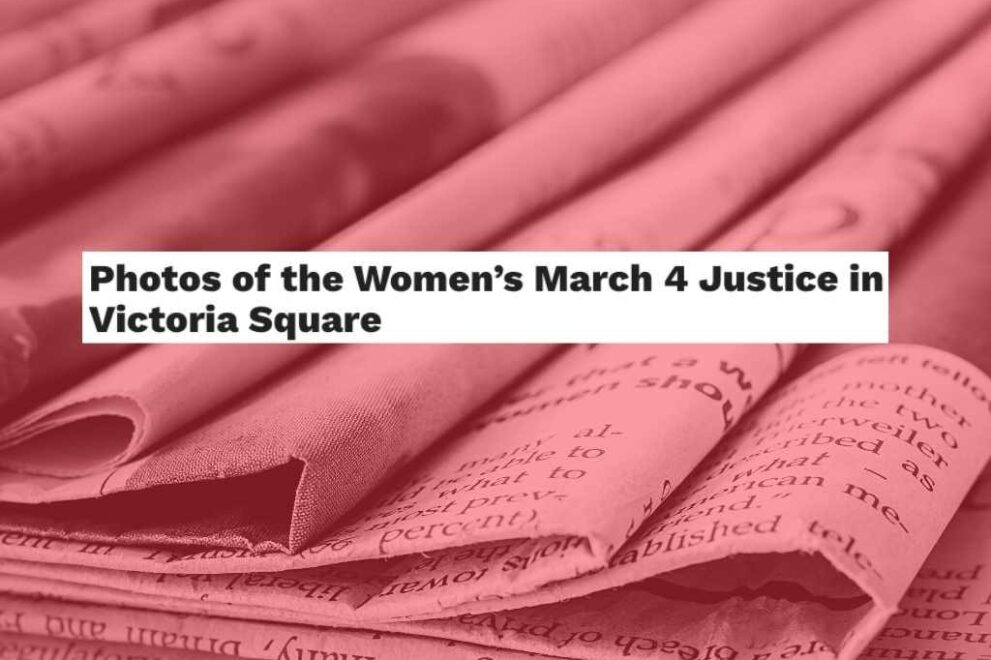
Working Women’s Centres – the first point of contact for women experiencing sexual harassment in the workplace – received just $200,000 in the Federal Budget.
“We are experts in preventing and addressing workplace sexual harassment and violence through one-on-one support, training and advocacy. The NT and QLD Working Women’s Centres are experiencing a funding crisis, yet only $200,000 was delivered in the Federal Budget. This represents only interim funding. How long can we wait for funding certainty?” said Nicki Petrou, Director of the Working Women’s Centre NT.
“Despite our long and proud history of supporting women workers and advocating for fairer and safer workplaces, we continue to battle for funding to keep our doors open.
“This is a huge missed opportunity for the Prime Minister to show a commitment to tackling workplace sexual violence. There is a massive unmet need for our services. Funding Working Women’s Centres is an easy, immediate and tangible solution for the prevention of sexual violence and provision of direct specialist support to women across Australia.
“In 2016, the Queensland Working Women’s Centre was defunded by the federal government and in 2020 we lost funding for the NT Working Women’s Centre. This Government has not provided any funding certainty in the Budget. This is disappointing to working women across Australia who are in desperate need of support.
“The Working Women’s Centre model is world-leading. We are the backbone of the struggle against workplace sexual harassment and violence. The voices of working women have not been heard. Survivors all over the country are speaking out, yet the “women’s budget” doesn’t adequately support survivors of sexual violence in the workplace. Scott Morrison has failed working women.”
“A key recommendation of the Respect@Work report – Recommendation 49 – was to fund Working Women’s Centres in every Australian state and territory. This is because our world-leading model is proven. Working Women’s Centres allow women to access free information and advice from specialist services when they experience sexual harassment at work,” said Nikky Candy, Director of the Working Women’s Centre SA.
“When a woman experiences sexual harassment at work they face very complex, personal choices. Being armed with the facts about their options empowers them at a time when they are incredibly vulnerable. Women should not have to make a decision between their safety and economic livelihood. This funding decision will leave vulnerable women even more vulnerable.”
“The Prime Minister has failed the test when it comes to tackling sexual violence in the workplace, especially for women in the NT who face the prospect of being left without specialised support in a matter of months. Funding the NT and QLD centres would have cost approximately $1.4 million per year, but instead, the government has only provided $200,000 in the budget to be split across both Centres.
“This $200,000 is not enough to save the NT Working Women’s Centre, which faces the prospect of closure after 1 July 2021. Both the NT and QLD Working Women’s Centres will have to turn away women in need of support and representation.”
“We are a much needed safety net for all Australian women to be supported at work. The government agreed with Recommendation 49 in their Roadmap to Respect, but has not yet done what is required to save the Working Women’s Centres,” said Fiona Hunt, Director of the QLD Working Women’s Centre.
MEDIA CONTACTS:
WWC QLD Director – Fiona Hunt
WWC NT Director – Nicki Petrou
WWC SA Director – Nikki Candy
Notice of press conference
WEDNESDAY 12 MAY, 11:15AM
Senate Courtyard, Australian
Parliament House
| WHAT: | Lawyers and advocates respond to defunding of Working Women’s Centres |
| WHEN: | 11:15AM
Wednesday, 12 May 2021 |
| WHO: | Nicki Petrou, Working Women’s Centre NT Director
Fiona Hunt, Working Women’s Centre QLD Director |
| WHERE: | Senate Courtyard
Australian Parliament House, Canberra |
| MEDIA
CONTACT: |
Nicki Petrou, WWC QLD Director
Fiona Hunt,WWC NT Director Nikki Candy, WWC SA Director |
Two out of five Australian women experienced sexual harassment at work in the past five years. Despite this national crisis, Prime Minister Scott Morrison has refused to commit to funding the services that provide a first-point-of contact for women who are sexually harassed at work.
“Working Women’s Centres provide free, expert and impartial information to women about their rights and options when they are sexually harassed at work. The Queensland Working Women’s Centre was defunded by the federal government in 2016 and NT Working Women’s Centre was defunded in 2020.” said Fiona Hunt, Director of the Queensland Working Women’s Centre.
“The Respect@Work Inquiry specifically recommended that the Prime Minister do the opposite. It proposed we be funded to establish a Working Women’s Centre in every state and territory.
“We run on the smell of an oily rag, but the services we provide change women’s lives every day. Many women don’t know where to turn when they experience sexual harassment at work. They face difficult decisions and often face choosing between their safety and their livelihoods.
“The model is proven. We provide free information to women and already there is a huge unmet need. It’s absurd that we are now faced with closing the Northern Territory and Queensland Working Women’s Centres when the Respect@Work Report said we should operate in every state and territory.
“It would cost approximately $20,000,000 to properly establish and fund Working Women’s Centres in every state and territory. Given workplace sexual harassment costs the economy more than $2.6 billion per year, this is a drop in the ocean.
“We help women from all walks of life understand their rights and options. Our staff are experts in workplace law and trained in working with vulnerable clients. We also offer workplace training on preventing sexual harassment, which changes workplace culture.
“Recently, we have assisted a young woman who was working in a male dominated industry and was subject to unwanted sexual advances and touching during her probationary period. When she complained she was dismissed. We represented her to make a sexual harassment discrimination complaint, and she won substantial compensation. We receive hundreds of calls from women in similar situations who need our help,” said Fiona Hunt.
Nicki Petrou, Director of the NT Working Women’s Centre said: “In a climate when women’s safety at work has again hit the headlines, when the Federal Government has committed to building women’s workforce participation, economic security and making women’s homes and workplaces safe, funding specialist women’s services such as the Working Women’s Centres who are here now continuing to do the work, in supporting women with workplace issues and throughout COVID is especially critical. This also makes good sense, including economic sense when you look at the costs.”
“Workplace sexual harassment occurs in every industry, at every level, across every profession, in every region of Australia and cultural group. If Prime Minister Scott Morrison is genuine about acting to prevent sexual harassment he must immediately reverse the current funding situation for at risk Working Women’s Centres and invest seriously in women’s specialist services to appropriately respond to these issues.” said Nicki Petrou.
WWC NT Director – Nicki Petrou
WWC QLD Director – Fiona Hunt
WWC SA Acting Director – Nikki Candy
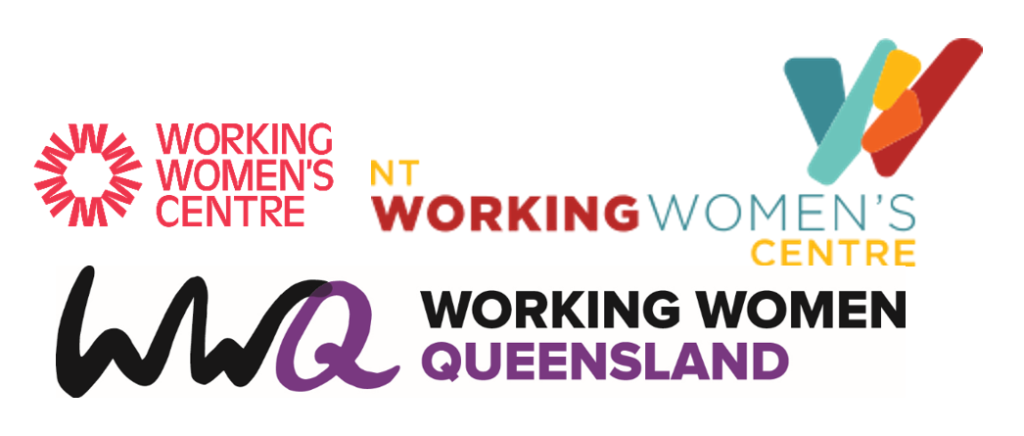
Media Statement
22 April 2021
The Working Women’s Centres call on the Federal Government to immediately take action and fund the Northern Territory and Queensland Working Women’s Centres.
The funding and establishment of Working Women’s Centres in every Australian state and territory is essential to addressing workplace sexual harassment, and forms a key part of the Respect@Work report, appearing at recommendation 49.
The recommendation is that ‘Australian governments provide increased and recurrent funding to working women’s centres, to provide information, advice and assistance to vulnerable workers who experience sexual harassment, taking into account particular needs of workers facing intersectional discrimination.’
The Federal Government has agreed to this recommendation in the Roadmap for Respect. However, the government has failed to provide certainty as to its funding commitment or timeframes around these discussions.
We cannot wait. The Northern Territory and Queensland WWCs have 10 weeks to find funding or face the prospect of closing. This will be devastating to working women in QLD and the NT and it will fly in the face of the federal governments promises to address gendered violence in the workplace.
*
The Government must act now and immediately fund the NT and QLD services. Our clients, communities and working women are depending on us. Working Women are depending on the government to save their services, who work and understand the local environment and the challenges in which they live and work.
Funding Working Women’s Centres is an easy, immediate and tangible solution for the prevention of sexual violence. This is the first test for the new Attorney General and the federal government since their response to the Report’s 55 recommendations.
Experts and leaders in gender equity regularly talk about the Working Women’s Centre holistic model as world leading. WWCs form the backbone of the fight to eliminate gendered violence in our workplaces and the community.
*
Director of the QLD Working Women’s Centre Fiona Hunt says: “All women deserve safe workplaces and someone to champion them when they are treated unfairly. WWC QLD works with the most vulnerable women in QLD to keep them employed, to get what they are entitled and to walk away fairly if needed.”
Director, of the NT WWC Nicki Petrou says: “In a climate when women’s safety at work has again hit the headlines, when the Federal Government has committed to building women’s workforce participation, economic security and making women’s homes and workplaces safe, funding specialist women’s services such as the Working Women’s Centres who are here now continuing to do the work, in supporting women with workplace issues and throughout COVID is especially critical. This also makes good sense.”
Director of the SA WWC Abbey Kendall says: “The South Australian WWC is a great example of what a secure and funded and working women’s centre can do for workplaces, vulnerable people and working women. We make a big impact in South Australia but we need a national approach to this issue. We need an alliance of well funded Working Women’s Centres in every state and territory and the first step to achieving that is to save the NT and QLD centres”.
Media contacts:
WWC NT Director – Nicki Petrou, – 08 8981 0655 - nicki@ntwwc.com.au
WWC QLD Director - Fiona Hunt, 07 3847 5532 - fionah@brq.org.au
tor Abbey Kendall, 08 8410 6499, abbey@wwc.org.au
###
Background on WWC
The Working Women’s Centres are not-for-profit organisations which providefree advice, representation and support to vulnerable, workers about their rights at work. Additionally, the WWC’s advocate for systemic change to improve women’s workplace conditions and safety, and offer a range of free and fee for service training for workers and employers about workplace rights. This includes bullying, sexual harassment, and appropriately responding to disclosures of domestic violence.
There are currently 3 WWCs across the country (SA, NT and QLD). The only WWC with secure funding is WWC SA with the QLD service now a program of the Basic Rights Centre following non continuation of its funding 4 years earlier.
The Working Women’s Centre is made up of three arms:
Industrial/Legal support – we provide advice and representation to vulnerable workers who contact the Centre with work issues through 1:1 clinic appointments
Advocacy – we conduct advocacy to resolve systemic issues that affect women and other vulnerable workers, such as sexual harassment and precarious work
Young women’s recent brave advocacy for a safer future has focused national attention on the urgent need for systemic action. Brittany Higgins has come forward with an allegation that she was raped in Parliament House. Friends of a woman who has now died have spoken out about rape allegations against our country’s Attorney-General. Dhanya Mani has spoken up for a safer future and prioritising survivors after the woeful response to her allegation of indecent assault. Chanel Contos has called out rape culture in schools. Australian of the Year, Grace Tame, has spoken out about coverup culture and abuse of power.
Every single day survivors disclose violence to a system that doesn’t care enough to bring them justice.
Enough is enough.
Rape and other acts of gendered violence have profound, life-long consequences for survivors, often including physical disabilities and mental health conditions. Yet our prevention infrastructure and support services are not resourced to adequately support survivors’ safety. And systems too often fail to hold perpetrators to account.
We deserve better.
Our parliamentary leaders must treat all forms of gendered violence as seriously as other threats to community safety.
Political leaders must take decisive action to make parliaments a safe place for everyone. Including improving the rules governing political staffers and party members to prevent abuse, addressing inequality, providing accessible independent reporting avenues, and ensuring real accountability for misconduct. But action in this moment must extend beyond our parliaments.
There is also a crisis in our communities. Horrific violence is being perpetrated and enabled across the country – the result of a wider cultural and systemic problem that manifests in schools, workplaces, institutions and homes. For many, these drivers of violence are further enabled by intersecting power dynamics that increase barriers to a safer future. For Aboriginal and Torres Strait Islander women, resisting the ongoing impacts of colonisation and racism is inseparable from gender justice. Intersecting systems of power and oppression also increase barriers to safety for women from culturally and linguistically diverse backgrounds, women with disabilities, younger women, older women, women in institutional care, women in prison, women in insecure work, and trans and gender diverse people as they strive for safety and justice. Too often, impunity is the outcome.
It is the responsibility of governments to intervene in the systems that continue to enable violence. Survivors and community leaders are already working for a safer future – it’s time governments properly supported solutions, particularly the leadership and self-determination of First Nations communities.
There are clear pathways to a safer future. We demand the action from leaders needed to make it happen.
This must also include:
Prevention: Implement the full spectrum of long-term systemic prevention initiatives that can address the underlying causes of gendered violence, including sexism and intersecting forms of discrimination. Starting with comprehensive whole-of-school education programs.
Resourcing services and accountability mechanisms: Properly resource the specialist services that victim-survivors of gendered violence rely on to report, be safe and recover. Resource the mechanisms needed to hold perpetrators to account.
Law reform: Improve access to justice for victim-survivors of sexual assault through substantive and procedural law reform, and educate the workforce so responses are appropriate and trauma-informed.
Addressing workplace sexual harassment: Action all recommendations of last year’s Respect@Work: Sexual Harassment National Inquiry Report.
Anything else falls short, and is a decision to leave women in danger.
We must believe, support and listen to survivors, hold perpetrators accountable, and properly resource solutions to prevent gendered violence from occurring in the first place.
This article was published by City Mag 18 March 2021.
Listen to the full interview on The Wire here.
Recent cases instigating this public action include the alleged rape of former Liberal Party staffer Brittany Higgins by a colleague, and a historical 1988 rape accusation levelled at Attorney-General Christian Porter (which he denies).
From within the crowd, CityMag saw speeches in the Square, before protesters marched to Parliament House and back. The first speaker was Kaurna and Wirangu woman Rosemary Wanganeen.
Rosemary tells the crowd colonisation and the “Western patriarchal construct” created the “greater potential” for society’s male elite “to live in privilege”.
“Those living in a society with a Western patriarchal and colonised mindset depend on us as women to fall into a rabbit warren of hopelessness, in the hope that believing is all too hard. But we’re not going to do that, are we?” Rosemary says. The crowd responds: “No”.
“We are going to keep making noise,” Rosemary continues, “and yes, we’re going to get emotional.”
CityMag speaks to a number of protesters while the speeches rage on, including a 67-year-old “survivor of sexual assault”, who we’ve chosen not to name.
She says while working in the corporate world she’d “seen a lot” in terms of sexual harassment. “Enough is enough,” she says.
In another group of protesters, we meet Barbara and Quintin McIntyre. We ask why they’re here. Barbara breaks into tears. Quintin, her husband, answers: “[Barbara] told me before that she wants things to change so her granddaughters don’t go through what she went through.
“You don’t need another review. You need things to actually change.”
Barrister Clare O’Connor also spoke at the event, saying this national effort was spurred on by the last three weeks of “disgusting information” emanating from Canberra, and government leaders need to commit to reform.
“There’s been a very, very good inquiry with 55 recommendations that came down from the Human Rights Commission. It explained how to make a workplace safe,” she says, referring to the Respect@Work report.
“We need to demand action from our politicians in relation to these things. We need to demand action in relation to those workers who are protected, those who do not have to be investigated – those parliamentarians in Canberra. Why are they above the law?”
South Australia has been in the throes of its own toxic parliamentary issues, with the publication of the Acting Equal Opportunity Commissioner’s recent report into parliament finding sexual harassment “prevalent” and “the problem and its solutions sit at an organisational and cultural level”.
The report includes 16 recommendations aiming to prevent and appropriately handle sexual and discriminatory harassment in this particular workplace, however the document reiterates sexism will only really be eliminated “through concerted efforts to create cultural change”.
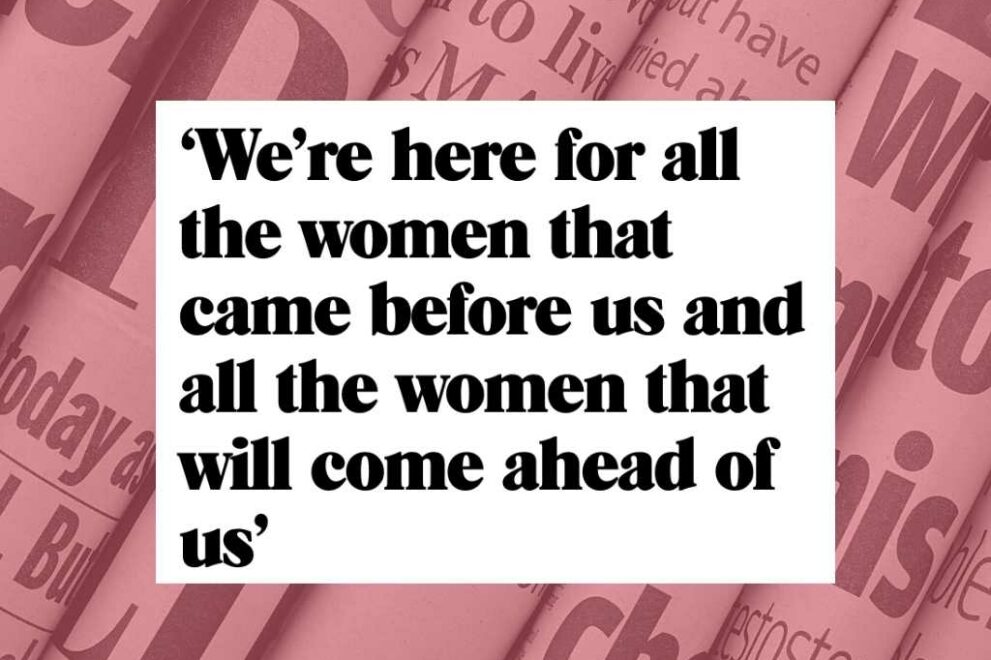
This interview was published by InDaily Monday March 15 2021
Read the full article on InDaily here.
The crowd of mostly women gathered on the steps of Victoria Square to the sound of John Farnham’s You’re The Voice with placards warning “I’m angry”, “enough is enough”, “no Porter in the house” and “we believe you Brittany”.
They then marched down King William Street towards Parliament House chanting “justice for women now” and “we will not be silenced”, before heading back to Victoria Square.
Among the protestors were SA politicians including SA Best MLC Connie Bonaros and Opposition Leader Peter Malinauskas, and human rights barrister Claire O’Connor SC.
The inaugural Adelaide March4Justice event, which started at noon, coincided with 35 protests across Australia, including in every capital city and many regional centres.
The protests supported a national march in Canberra, where a petition was delivered calling on Prime Minister Scott Morrison to act on gendered violence against women, including female Members of Parliament and staff.
The Adelaide protestors joined an estimated 100,000 people across the country calling for independent investigations into all cases of sexual harassment and assault.
South Australian protestors also called for SA Parliament to fully implement all 16 recommendations made in the Equal Opportunity Commission’s recent damning review into sexual harassment in State Parliament.
The protest’s co-organiser Dr Samantha Battams told reporters the review’s findings were not surprising.
“Women are silenced about these things – they don’t often speak up and tell their friends and family because they actually fear the consequences,” she said.
“We have already seen that with some of the national cases where women have lost their jobs.”
Barrister Claire O’Connor SC said she was the victim of violence and harassment in her workplace.
She said “every woman is here because she knows and she has experienced the pain and suffering that comes from being treated unfairly in the worksite, being treated unfairly in the home, being the victim of sexual assault and knowing that our voice doesn’t matter”.
“Enough is enough of the culture of not listening, not acting and blaming. That’s why we’re here.”
Former Federal Liberal staffer Chelsey Potter, who survived an alleged sexual assault by another former colleague in 2015, attended the Adelaide march.
She told InDaily that today was a “crucial moment for women in this country”.
“It’s actually quite emotional to feel that every woman has stood up and said ‘yeah this has happened to me’, or ‘I know someone this has happened to or you know what? I just don’t want this to happen anymore’,” she said.
“That’s an incredible thing – I’ve never actually witnessed something like this before and it’s a credit to Brittany Higgins and all the women who have stood up and said something.”
Potter said she hoped today would be “the beginning of an era where women will start calling assault and harassment out”.
Today is not the start of the social movement, but it is the start of a new notion and a new movement in Australia
She said there was was “no way” that politicians could ignore the protests happening across the country.
“They’re doing a very good job of trying to – particularly in not attending the march and I’m hoping there will be a minute to midnight change for government MPs, particularly for Coalition women to attend the march,” she said.
“I do feel like there’s no way but forward now.
“There certainly can’t be anymore ignorance on the issue, there certainly can’t be any more closed doors meetings, it has to be a conversation with women.”
The protest also heard from Kaurna and Arabunna woman Janette Milera, who organised the Black Lives Matter protest in Adelaide last year.
“Our women have been fighting the colonial white men from the day of colonisation,” she said.
“Our women have been raped, they have been taken and stolen and made as sex slaves since colonisation.
“We all need a change as women because this man’s law that we live under, it doesn’t work for any of us.”
One protestor, who InDaily has chosen not to name, held a sign that read: “Hear me rage. Justice for rape victims”.
“I’ve been raped and sexually abused four times in my life,” she said.
“I’ve reported it to police on four different occasions and… I haven’t taken it to court because of the damage it will do to me and my family.
“I haven’t been able to let out my rage and this is about me settling into my power and rage.”
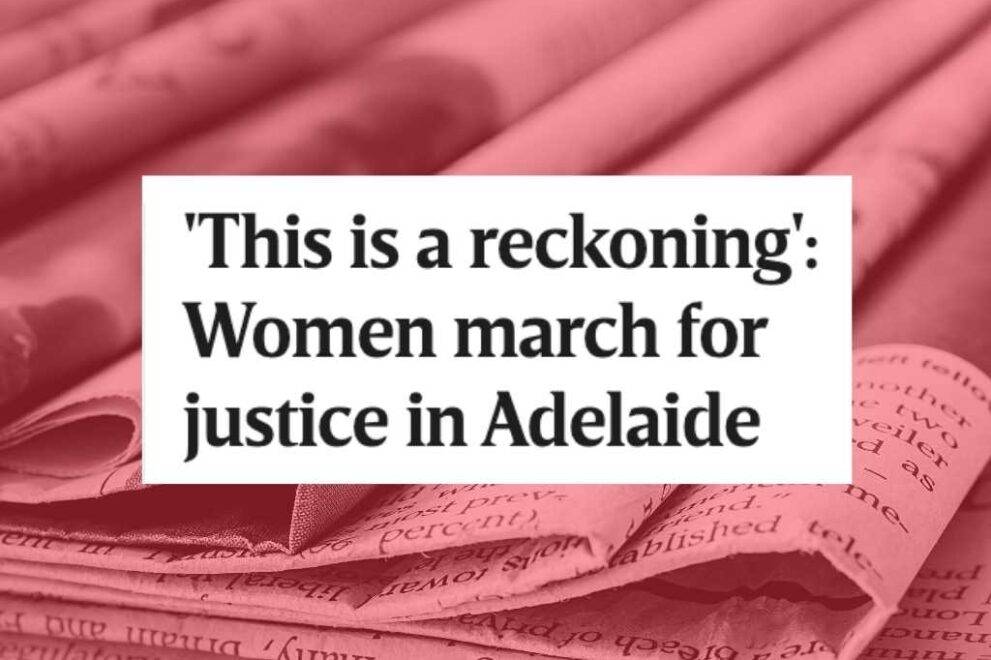
The Working Women’s Centre SA has today written to all major political parties, urging them to commit to tackling sexual violence in their offices. The Working Women’s Centre SA Inc said that after Brittany Higgins’ story, and revelations about other sexual assaults within political offices, political parties need mandated training for their staff about preventing and responding to sexual harassment.
Today, the Working Women’s Centre sent a letter to the secretaries of the Liberal Party, the Labor Party and the Greens at a federal and South Australian state level, as well as numerous political offices, asking them to take responsibility for addressing this issue. The Working Women’s Centre SA has proposed that all political parties engage in a tailored training program that aims to prevent and safely respond to incidents of sexual violence in the workplace.
They hope to see parties make commitments to changing their workplace culture through immediate action in line with the recommendations of the Respect@Work National Inquiry Report into sexual harassment.
Abbey Kendall, Director of the Working Women’s Centre SA, said “There is something deeply wrong when the workplaces of the country’s most powerful decision-makers are failing to maintain a safe workplace and culture for women. Given the significant resources our elected representatives and their offices have, there is no excuse for failing to provide a workplace free of sexual violence. No woman should lose her job because she is assaulted.’
‘These are not the first women working in politics to come forward with stories of sexual assault. There will be more stories, from all corners of politics. The systems, the attitudes, and the culture all need to change.’
‘For us, this is not about party politics. This is about ensuring that every working woman in the country can work safely and without fear of sexual violence or harassment. Every political party in the country needs to act.’
Media contact:
Abbey Kendall
08 8410 6499
abbey@wwc.org.au
